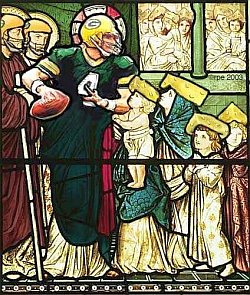 Over at Al Mohler’s site, he adds to the talking point that sports, notably the Super Bowl, are the new American religion. Over at Amazon.com, several “unhelpful” review comments for my negative review of the Christian book Transformed got me wondering about doing versus being.
Over at Al Mohler’s site, he adds to the talking point that sports, notably the Super Bowl, are the new American religion. Over at Amazon.com, several “unhelpful” review comments for my negative review of the Christian book Transformed got me wondering about doing versus being.
What they do they have in common?
A few weeks ago, I read an article about the sameness of today’s movies. The author argued that all films today seem the same because we Americans no longer have an approved set of themes that define us as Americans. If we make a movie about the greatness of America, people who don’t think America is great will not go to see it. We can’t do a movie about religion’s steadying influence on the American Way of Life because a lot of people aren’t religious. We can’t talk about the sanctity of family because that means too many different things to different people.
About the only script we can agree upon is that oppression is bad. And in America 2014, oppression is seen as little more than bad people preventing us from doing what we want to do. It doesn’t get blander than that.
Enter the Super Bowl.
For a prescribed number of hours, Americans can agree on one event that promises a football game, some entertaining commercials, and a mid-game spectacle. A free, package deal that is harmless enough and gives us an excuse to socialize and eat too much. And unlike Thanksgiving, we can pick and choose with whom we hang out.
From this, some claim that sports are our new religion.
Nah.
Instead, sports—well, the Super Bowl at least—are America’s last touch stone.
Religion stopped being a touch stone when we became aware of too many religions. Sure, we in America sort of kind of chose Christianity, but now we’re swimming in 20,000 brands of Christianity, and who can choose the right one? They all seem a little factious, too, with one claiming to be better than another.
Plus, they are all so demanding.
Which brings us my Amazon review.
The main thought in the book Transformed by Caesar Kalinowski is What if Christianity were more about being and less about doing?
What person today doesn’t want Christianity to be more about being and less about doing?
Well, pretty much everyone, because I think people feel maxed out. They can spare one Sunday evening a year, but don’t ask them to spare every Sunday morning and a whole lot of other days and evenings along with them. One more thing on the schedule? God help us!
Maybe we are run rugged. Maybe we are lazy.
In a way, it doesn’t matter, because whatever the truth is, the perception is that if one more person asks us to do one more thing, we’re going to go postal.
Kalinowski’s book doesn’t help. That promise of just being able to be gets turned into “change all your traditional church activities into missional community activities.” Swap overscheduled for a cool, hip, quasi-religious word, intentional. Feel more Christian yet?
Well, no.
What happened to the promise of just being?
That’s a good question, but it’s not one Christian leaders are answering. Give more money, attend more conferences, be more available, help more people, and do more stuff for the Kingdom. In the end, for whatever reason, the response from the guy with bags under his eyes is no. So people turn on the tube and watch the Big Game instead. It doesn’t ask much from them. Then, when the hoopla is over sometime around 10 p.m. or so, folks head home to bed and get ready for the next day at work. See you next year.
I don’t think church leaders get this. So nothing changes.
I don’t think there’s enough being in the American Church. We’re not teaching people how to abide in Christ. We’re teaching them the Christian life consists of a bunch of disconnected activities and to-do list items, and people are saying no. Why wouldn’t they?
It’s not that the Super Bowl is America’s new religion. It’s just that it’s easy. Meanwhile, the Church keeps loading up overloaded people with more things to do. Meanwhile, Jesus goes missing amid all the hubbub.

 The family with the unruly special needs child, the kid that hoots and hollers sometimes during a quiet Sunday meeting. That harried mom and dad who got one too many stares one Sunday and then weren’t there the next to receive more.
The family with the unruly special needs child, the kid that hoots and hollers sometimes during a quiet Sunday meeting. That harried mom and dad who got one too many stares one Sunday and then weren’t there the next to receive more. If we are drunk, then we lack the sobriety in the Spirit to know the difference between the good and the best. Have we asked soberly if spending 10-15 times as much time singing on a Sunday turns prayer into an afterthought? Should we then scratch our heads when nothing changes for the better? Should we then blame God for the fruit of our corporate prayerlessness?
If we are drunk, then we lack the sobriety in the Spirit to know the difference between the good and the best. Have we asked soberly if spending 10-15 times as much time singing on a Sunday turns prayer into an afterthought? Should we then scratch our heads when nothing changes for the better? Should we then blame God for the fruit of our corporate prayerlessness?